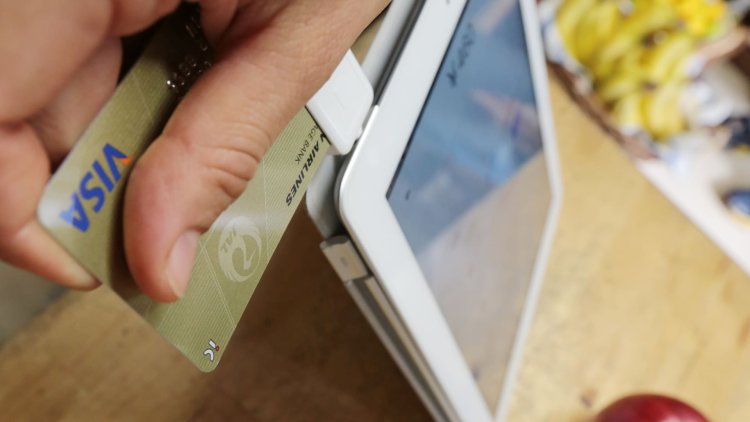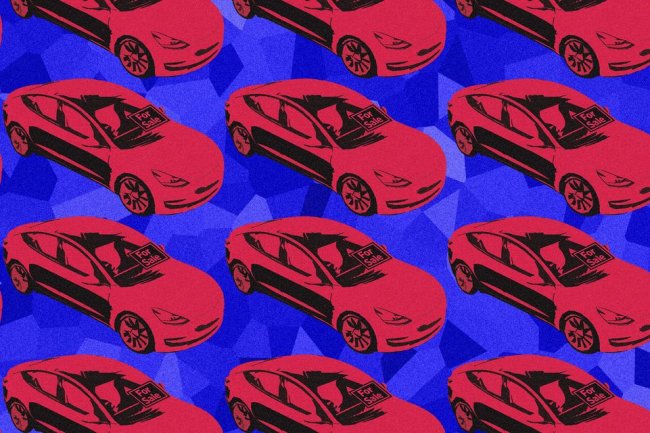This credit card fee could cost shoppers $3 billion during record-breaking back-to-school season, merchants say
watch nowVIDEO1:5201:52Small businesses fights back against 'swipe fees'Small BusinessThis year, consumers are spending more on back-to-school supplies and coughing up more to cover a particular kind of credit card fee at the same time.Total back-to-school spending is expected to reach a record $41.5 billion with another $94 billion in college shopping, according to the National Retail Federation.related investing newsBehind Prime Day's rosy headlines are mixed signals for back-to-school season. These retail stocks will fare the bestChristina Cheddar Berk2 days agoThe so-called swipe fees, which companies such as Visa or Mastercard charge businesses every time a credit card is used to make a purchase, could drive up the price of school and college supplies more than $3 billion this year, the Merchants Payments Coalition said Thursday.More from Personal Finance:Here's the inflation breakdown for June, in one chartEconomists say it's a near certainty that housing inflation will fallBuyin


This year, consumers are spending more on back-to-school supplies and coughing up more to cover a particular kind of credit card fee at the same time.
Total back-to-school spending is expected to reach a record $41.5 billion with another $94 billion in college shopping, according to the National Retail Federation.
related investing news
The so-called swipe fees, which companies such as Visa or Mastercard charge businesses every time a credit card is used to make a purchase, could drive up the price of school and college supplies more than $3 billion this year, the Merchants Payments Coalition said Thursday.
More from Personal Finance:
Here's the inflation breakdown for June, in one chart
Economists say it's a near certainty that housing inflation will fall
Buying power rose for first time since March 2021 amid falling inflation
"Swipe fees are astronomically high and make everything more expensive," said Doug Kantor, general counsel at the National Association of Convenience Stores and an executive committee member at the Merchants Payments Coalition.
Swipe fees, also known as interchange fees, have more than doubled over the past decade and jumped $22 billion to a record $160.7 billion last year. When the National Retail Federation first started tracking swipe fees collected by Visa and Mastercard in 2001, they amounted to about $20 billion.
"That's a lot of money," Kantor said. "Bankers skimming off the top of every transaction."
"They've made themselves an involuntary equity partner with every Main Street business," he added.
Card payments have benefits, too
Banks and card companies charge the merchant about 2% of the transaction, on average, every time a credit card is used to make a purchase. Now, with margins strained, retailers are passing most, if not all, of that cost on to consumers.
But with each credit card transaction comes benefits for businesses, such as higher sales, a larger customer base, fraud protection and guaranteed payment, according to the Electronic Payments Coalition.
"Electronic payments are four times cheaper to process than cash," said Aaron Stetter, the Electronic Payments Coalition's executive director. "According to big-box retailers' own consultants, credit and debit card payments will save them over $7.5 billion on back-to-school shopping this year."
However, most of the value is "happening behind the scenes," he added. "You don't necessarily see it at the front end."
"Merchants love to hate them," said Ted Rossman, a senior industry analyst at CreditCards.com. "But I would argue that credit cards lead to more spending and it's shortsighted when companies make it harder to use a credit card."
There are advantages for consumers, as well. Swipe fees largely fund credit card rewards, he added. There are some grocery rewards cards that can earn you as much as 6% back at supermarkets, while a generic cash-back card will earn you 2%.
"There's a lot to be said about the value of rewards," he said. "I would be wary of biting the hand that feeds you."
What's Your Reaction?















